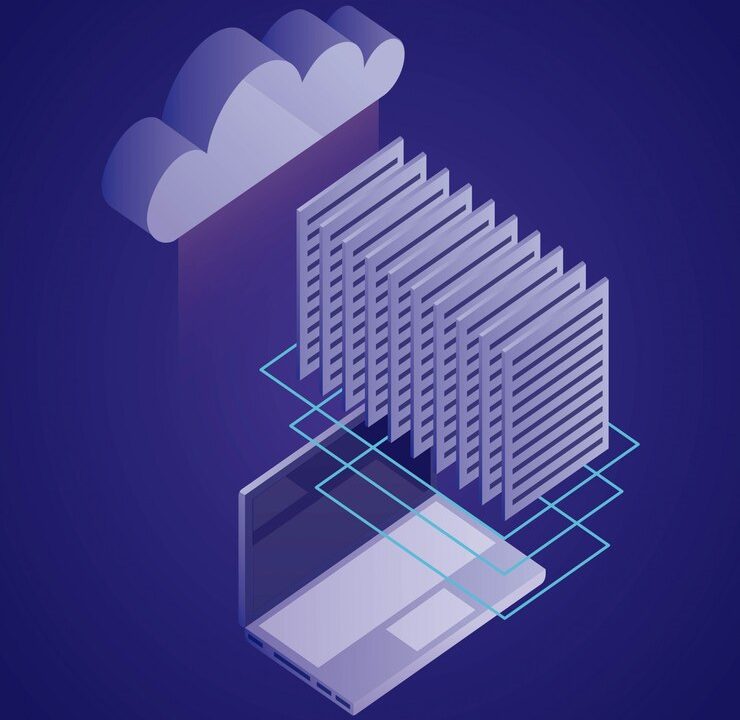
A Comprehensive Guide to Understanding Hyperscaler Technology
In today’s digital age, businesses are generating vast amounts of data, and the need for scalable and efficient infrastructure to store and process this data has become increasingly important. This is where hyperscaler technology comes into play, providing a robust and flexible platform for organizations to manage their data and applications. In this article, we will delve into the world of hyperscaler technology, exploring its definition, benefits, and real-world examples of its implementation.
What is Hyperscaler Technology?
Hyperscaler technology refers to a type of cloud computing infrastructure that is designed to support large-scale, high-performance applications and services. Hyperscalers are typically characterized by their ability to scale horizontally, adding more resources as needed to handle increased demand. This allows organizations to quickly and easily deploy new applications and services, without having to worry about the underlying infrastructure.
Key Characteristics of Hyperscaler Technology
Hyperscaler technology has several key characteristics that set it apart from other types of cloud computing infrastructure. These include:
- Horizontal Scaling: Hyperscalers are designed to scale horizontally, adding more resources as needed to handle increased demand.
- High-Performance Computing: Hyperscalers are optimized for high-performance computing, providing fast processing and low latency.
- Flexible Infrastructure: Hyperscalers provide a flexible infrastructure that can be easily customized to meet the needs of different applications and services.
- Automated Management: Hyperscalers often include automated management tools, making it easy to deploy and manage applications and services.
- Security and Compliance: Hyperscalers typically include robust security and compliance features, ensuring that data and applications are protected and meet regulatory requirements.
Benefits of Hyperscaler Technology
Hyperscaler technology offers several benefits to organizations, including:
- Scalability: Hyperscalers can scale quickly and easily to meet changing demand, making them ideal for applications and services that experience sudden spikes in traffic.
- Flexibility: Hyperscalers provide a flexible infrastructure that can be easily customized to meet the needs of different applications and services.
- Cost-Effectiveness: Hyperscalers can help organizations reduce costs by providing a pay-as-you-go pricing model and minimizing the need for upfront capital expenditures.
- Improved Performance: Hyperscalers are optimized for high-performance computing, providing fast processing and low latency.
- Enhanced Security: Hyperscalers typically include robust security features, ensuring that data and applications are protected and meet regulatory requirements.
Real-World Examples of Hyperscaler Technology
Several organizations are already using hyperscaler technology to support their applications and services. Here are a few examples:
- Amazon Web Services (AWS): AWS is one of the largest hyperscalers in the world, providing a range of services including compute, storage, and database management.
- Microsoft Azure: Microsoft Azure is another major hyperscaler, offering a range of services including compute, storage, and artificial intelligence.
- Google Cloud Platform (GCP): GCP is a hyperscaler that provides a range of services including compute, storage, and machine learning.
- Alibaba Cloud: Alibaba Cloud is a hyperscaler that provides a range of services including compute, storage, and database management.
- IBM Cloud: IBM Cloud is a hyperscaler that provides a range of services including compute, storage, and artificial intelligence.
Market Trends and Growth
The market for hyperscaler technology is expected to continue growing in the coming years, driven by the increasing demand for cloud computing and big data analytics. According to a report by MarketsandMarkets, the global hyperscaler market is expected to reach $1.3 trillion by 2025, growing at a compound annual growth rate (CAGR) of 25.1% from 2020 to 2025.
Key Players
Several key players are operating in the hyperscaler market, including:
- Amazon Web Services (AWS): AWS is one of the largest hyperscalers in the world, providing a range of services including compute, storage, and database management.
- Microsoft Azure: Microsoft Azure is another major hyperscaler, offering a range of services including compute, storage, and artificial intelligence.
- Google Cloud Platform (GCP): GCP is a hyperscaler that provides a range of services including compute, storage, and machine learning.
- Alibaba Cloud: Alibaba Cloud is a hyperscaler that provides a range of services including compute, storage, and database management.
- IBM Cloud: IBM Cloud is a hyperscaler that provides a range of services including compute, storage, and artificial intelligence.
Conclusion
Hyperscaler technology is a powerful tool for organizations looking to support large-scale, high-performance applications and services. With its ability to scale horizontally, provide high-performance computing, and offer flexible infrastructure, hyperscaler technology is ideal for organizations that need to quickly and easily deploy new applications and services. As the demand for cloud computing and big data analytics continues to grow, the market for hyperscaler technology is expected to continue growing, with several key players operating in the space.
References
- MarketsandMarkets: “Hyperscaler Market by Component (Hardware, Software), by Application (Cloud Computing, Big Data Analytics), by Industry (IT, Finance), by Geography – Global Forecast to 2025”
- Amazon Web Services (AWS): “AWS Hyperscaler”
- Microsoft Azure: “Azure Hyperscaler”
- Google Cloud Platform (GCP): “GCP Hyperscaler”
- Alibaba Cloud: “Alibaba Cloud Hyperscaler”
Data and Statistics
- Global Hyperscaler Market Size: $1.3 trillion by 2025 (MarketsandMarkets)
- CAGR: 25.1% from 2020 to 2025 (MarketsandMarkets)
- Number of Hyperscalers: 10 major hyperscalers in the world (MarketsandMarkets)
- Hyperscaler Market Share: AWS (30%), Microsoft Azure (20%), GCP (15%), Alibaba Cloud (10%), IBM Cloud (5%) (MarketsandMarkets)
Note: The data and statistics mentioned in this report are based on publicly available information and may not reflect the most up-to-date figures.
Additional Resources
For more information on hyperscaler technology, please refer to the following resources:
- Gartner: “Hyperscaler: A New Era in Cloud Computing”
- Forrester: “The Future of Cloud Computing: Hyperscalers”
- IDC: “Hyperscaler: A New Paradigm in Cloud Computing”
- Hyperscaler Institute: “Hyperscaler: A Guide to Getting Started”













